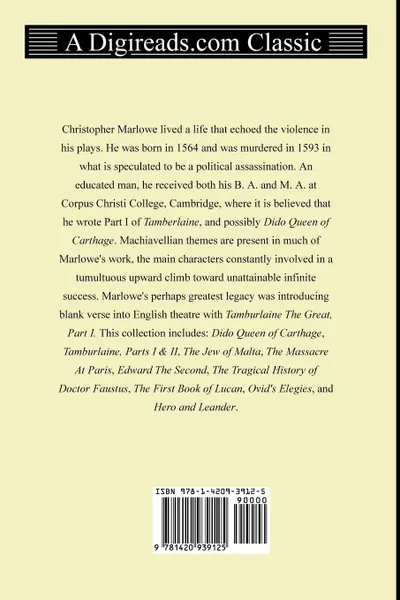The Complete Plays of Christopher Marlowe 14+
Автор: Christopher Marlowe
2010
506 страниц
Категория: Литература на иностранных языках
ISBN: 9781420939125
Язык: Английский
📓 Christopher Marlowe lived a life that echoed the violence in his plays. He was born in 1564 and was murdered in 1593 in what is speculated to be a political assassination. An educated man, he received both his B. A. and M. A. at Corpus Christi College, Cambridge, where it is believed that he wrote Part I of "Tamberlaine", and possibly "Dido Queen of Carthage". Machiavellian themes are present in much of Marlowe's work, the main characters constantly involved in a tumultuous upward climb toward unattainable infinite success. Marlowe's perhaps greatest legacy was introducing blank verse into English theatre with "Tamburlaine The Great, Part I." This collection includes: "Dido Queen of Carthage", "Tamburlaine, Parts I & II", "The Jew of Malta", "The Massacre At Paris", "Edward The Second", "The Tragical History of Doctor Faustus", "The First Book of Lucan", "Ovid's Elegies", and "Hero and Leander".
Мнения
